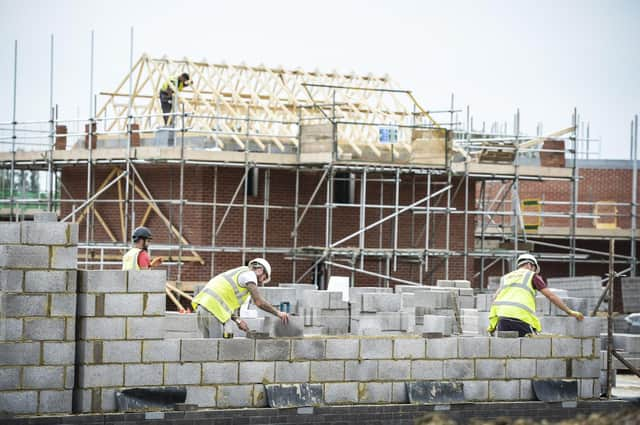Court ruling will aid planning - Anthony Aitken


On July 21, the Court of Session in Edinburgh upheld a judicial challenge from Scotland’s development industry to amendments made by the Scottish Government in December 2020 to Scottish Planning Policy (SPP).
In doing so, the court immediately quashed both the amendments to the SPP and the relevant planning advice note (1/2020) that was published by the government.
Advertisement
Hide AdAdvertisement
Hide AdIn essence, the consultation process used by the government was considered to be so unfair by the court that Lord Clarke ruled it “unlawful”. He took on board the industry’s arguments that government ministers had considerably underestimated the implications of the changes to the SPP, particularly around the development of new housing in Scotland.
He recognised the industry’s concerns that far fewer homes would be built as a result of the SPP amendments. And, crucially, that historical undersupply of housing - particularly affordable and sustainable homes - would not be addressed.
Some of the factors that led to court to rule against the Scottish government include the basis on which the original impact assessments of the amendments were prepared.
The government had claimed there would be no impact as a result of the proposed changes, without having any evidence to verify this view.
However, the court saw that as an unfair aspect of the process that may have led to some people not responding to the consultation, and others accepting the view there would be no impact.
Lord Clarke also said the proposed changes could not be described as “clarification, or technical and procedural”, contrary to what the government had claimed. Instead, the court saw the amendments as substantive and potentially far-reaching.
This Court of Session decision has re-instated the balance in the SPP, in place before the amendments were introduced in 2020, and clarified in previous legal rulings. The SPP therefore still sways in favour of sustainable development in cases where a shortfall in housing land supply clearly exists.
The court’s decision came about a year after the consultation was initially launched by Scottish ministers. It means that the Scottish Government’s attempt to significantly alter planning policy without evidencing the far-reaching consequences, has failed. And, as a result of this outcome, I believe we could see Scotland’s critical housing shortage still being capable of being effectively tackled and sustainable development encouraged.
Advertisement
Hide AdAdvertisement
Hide AdScotland’s National Planning Framework (NPF) is intended to be a long-term plan for the country that sets out where development and infrastructure is needed to support sustainable and inclusive growth.
With a new NPF4 being prepared for consultation this autumn, my view is that closer working between the Scottish Government and housebuilders, Homes for Scotland and the Scottish Property Federation is essential to deliver the homes needed in all our communities. It’s time to face up to get serious about addressing Scotland’s chronic housing shortage to the benefit of all.
Anthony Aitken, Head of UK Planning at Colliers
Comments
Want to join the conversation? Please or to comment on this article.